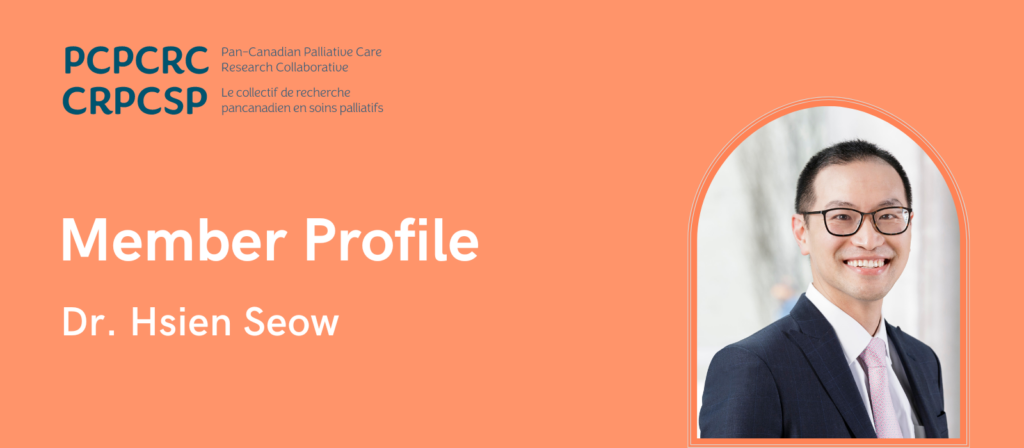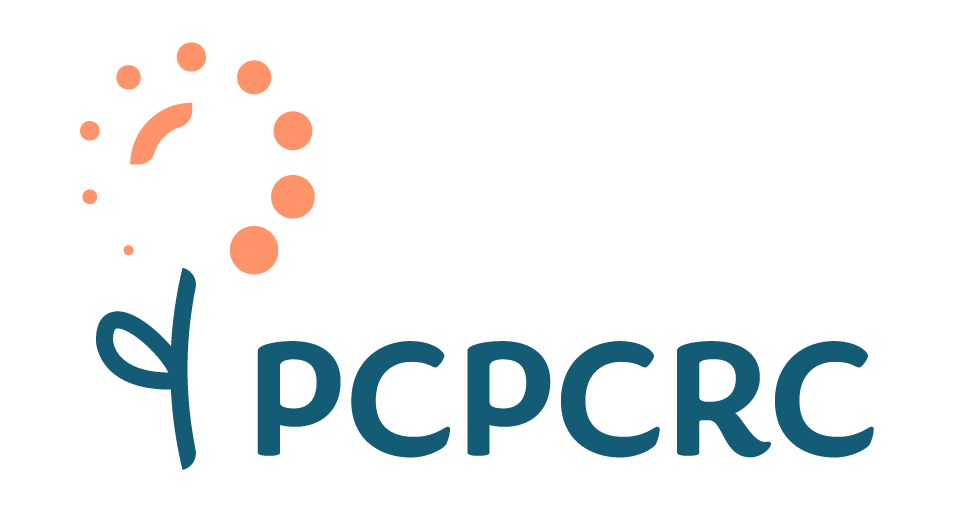
With over 100 investigators, healthcare providers, trainees, community and policy stakeholders, and patient and family partner members, the Pan-Canadian Palliative Care Research Collaborative is a network of practice-focused research groups aiming to produce high-quality palliative care research.
Our members have a passion for research and are looking to be actively involved in a palliative care research network. They come from many disciplines and include patients, caregivers, trainees, policy makers, clinicians, and researchers.
“To change the way patients and families experience a life-changing diagnosis,” says PCPCRC member Dr. Hsien Seow about his ultimate research goal. His core research interests lie in improving the patient and family experience facing a life-limiting illness by implementing an early palliative care approach.
Dr. Seow is Professor of Oncology at McMaster University and Canada Research Chair in Palliative Care and Health System Innovation. He is currently working on developing and evaluating education interventions for health care providers, patients and families, aiming to change behavior and improve patient-family outcomes in diverse contexts.
When his mother died of breast cancer, Dr. Seow knew that oncology would be his career focus. He soon saw how frequently patients and families facing serious illness are overwhelmed and unprepared. He sought to understand and improve “the ways our health and social system organize and deliver care for those with serious illness.”
Dr. Seow’s latest book, “Hope for the Best, Plan for the Rest: 7 Keys for Navigating a Life-Changing Diagnosis,” is co-authored with Dr. Samantha Winemaker and was published in 2023. The book is the culmination of the pair’s work through their podcast, The Waiting Room Revolution, interviewing experts, clinicians, patients, and families to distill a set of skills patients and families need in order to have a better illness experience. “It’s essentially a guidebook on how to be a patient and family member and get the best care possible,” he explains. “Those interviews, combined with the thousands of patient stories we had witnessed at the bedside and in our research, led us to the book.”
He and Dr. Winemaker had spent decades focused on education of health care providers, with the feeling that things were improving at a slow pace. They ultimately realized that they could affect change more quickly if shifted their focus to educating the public – particularly patients and families with a life-changing diagnosis – and taught them how to seek an early palliative care approach from the health system, without the labels. “So we started to imagine what a social movement with that goal would look like,” he elaborates.
An early member of the PCPCRC, Dr. Seow has collaborated with many other palliative care researchers across Canada throughout his career. When the PCPCRC was formed, many of these collaborators joined the network, and “it was only natural for me to feel like a natural home with this group.” The networking has “strengthened relationships and friendships,” he says. “It leads to more collaborative research, better science, and more impact.”

